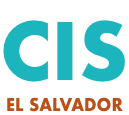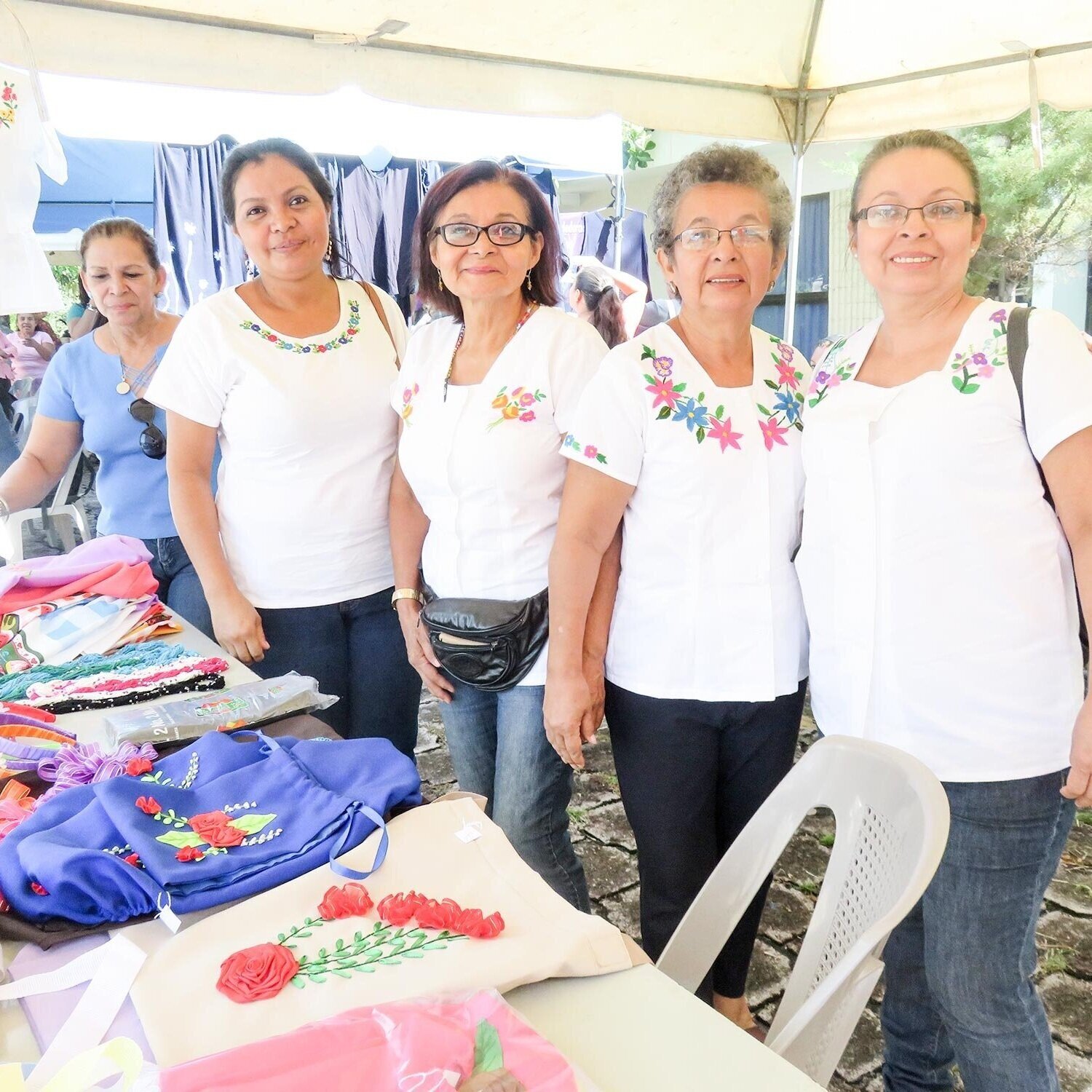
In El Salvador 42% of women have no source of their own income.
Our Women’s Enterprises and Empowerment program has worked since 2003 to help women generate their own income and improve their individual confidence, business skills, and organizational strength.
The program began as a joint effort with a U.S.-based non-profit organization, Salvadoran Enterprises for Women (SEW), and in response to the exodus of hundreds of Salvadorans daily for the United States where they sought to find jobs that would provide an improved quality of life. An economically viable livelihood in El Salvador seemed increasingly out-of-reach after the earthquakes of 2001 and with the repercussions of economic policies that put poor families, especially in rural areas, at a further disadvantage.
We developed programs like this one to support women and youth, two of the traditionally most marginalized populations and those often left behind with the exodus north. In 2002, women told SEW co-founder Anne Marie Gardner that the greatest way to help them get out of poverty was to assist them in launching small businesses that would allow them to be close to their children and keep money in the local economy. This became the vision of the CIS and SEW’s partnership: “Economic and Social Justice for Women through Small Business Development.”
Today, we work with 12 women-led enterprises of 100 members in 12 communities and we support 16 artisan workshops that generate income for 75 families.
✔ Women’s participation in this program strengthens their self-esteem, autonomy and ability to organize.
✔ The additional income enables their children to attend school.
✔ As women create value, they gradually disrupt status quo gender roles and learn their power as active voices in their communities.

The CIS works with partner organizations to offer:
A series of workshops run by CIS promoters on personal and organization development
Training in basic business administration, accounting and planning
Assistance with developing a budget and business start-up plan
Development of technical skills, marketing and sales
Follow-up support and further training as the business develops
Networking and connections to others with skills needed for the business
How We Work with Women’s Enterprises
Together with SEW, we built a team of grassroots business promoters that accompany and guide women on entrepreneurship, communication, leadership, gender equality and human rights. Our promoters help groups identify what type of business they wish to pursue, the target markets for their products, and what training they need. We prioritized women in rural areas because they lacked formal sector employment opportunities and training available in the city, and had completed few years of formal education.
In addition to basic business training, CIS has also provided scholarships to the women for literacy classes, computer courses, and grade school, high school, vocational and university education. Some of the women, single mothers, are now university graduates!
It can take four to six years for a business to be self-sustaining. To further train the women, the CIS built relationships with governmental and non-governmental agencies such as: INSAFORP, CONAMYPE, Salvadoran Universities (UCA, Mathias Delgado), SIRAMA, Balsamo Anil, and individual training facilitators.
For the women, owning their own businesses has been life-changing. Women who have fled gang extortion have joined these businesses and are now building a new future. We have seen women cry when they receive their first payment for their work. Women who used to be too shy to say their names, now share critical opinions. These circles of women provide moral support to a fellow woman in their community who is being physically abused.
Also, the women are taking on greater responsibility. Many of them serve on municipal and community councils, school boards and other leadership roles – not the usual practice in Salvadoran culture. In their homes, their husbands and children have slowly come to share the chores!

Examples of women-led businesses we work with:
Cultivating the jiquilite plant for indigo dye
Indigo dying
Candle making
Natural medicine and beauty products
Dairy products
Embroidery and sewing
Traditional Salvadoran food kitchens
Bakeries
Sausage making
Candy confectionery
Local convenience stores
Poultry raising
Crafts
Jewelry
The women of the Jiquilite Organic Agriculture Cooperative of the Romero Community have learned to present their indigo dye to potential clients and are networking to increase their sales.
The goal is that these businesses become self-sustaining, such as Creative Hands of Estanzuelas. Creative Hands is training a new group of women to sew, to be able to complement their embroidery and handicraft work.
Creative Hands embroidery of Estanzuelas
Women Artisans El Torogoz, candle making, shampoo and cornhusk flowers, from San José Palo Grande Community

Quotes from Women and their Families
“
My mother is a fighter and is giving me a good example to follow. She is responsible and manages a variety of goals. She looks ahead and she does not just get stuck. She enjoys work even if it is hard for her. I feel that she is really happy working with the micro business.”
- Nataly Gabriela Alfaro, 16 years old, daughter of Maria Isabel Rivas de Alfaro (Micro-Business La Vaquita)
“
It all starts in the family – girls are told, “You don’t need to go to high school to be able to do housework and raise kids.” Boys can go out and play soccer. Girls have to stay home and do chores. We want to change this pattern and value girls from a young age.
We are women with dreams. We want to grow our business. We want to grow intellectually and spiritually. We want our opinions to be valued equally as a man’s. We want to be compensated equally for our work.”
- Crisabel
What difference does your business make?
- Delmy, CIS promoter, to the members of Vivaz Indigo and Sewing Co-operative
“I installed electricity in my home with my earnings”
- Margarita
"I am able to contribute to pay for my two children to study at the university."
- Mercedes
“I am saving to buy a house.”
- Ruth
"I can pay for my two children's needs and no longer depend on my mother for support."
- Karyn
“[Women] work together as a family. If someone needs help, we give it to her.”
- Mercedes
Our Gender Human Rights Scholarship Fund
Since the end of the civil war in El Salvador, the CIS has supported efforts to protect human rights. Our programs have evolved and expanded to meet the needs that have arisen in the society.
In recent years, our work for human rights has included support for two specific groups: women unjustly imprisoned and transgender women. Under existing Salvadoran laws and procedures in the justice system, protection of their human rights is extremely limited.
Through our Gender Scholarship Fund we provide funding to help people of these two groups or their children access new training and education.
In 2020, the CIS sponsored eleven students in this program: seven at the university level, three in high school, and one in junior high school.


















